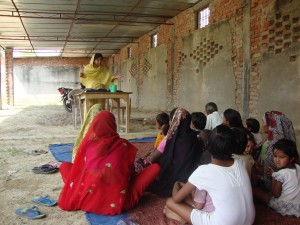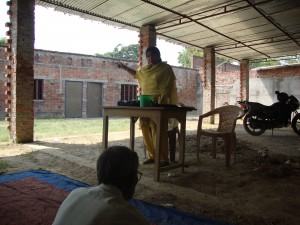20 Signs of the Last Days (Revisited)
Comments Off on 20 Signs of the Last Days (Revisited)
 1. The Spirit poured out on all flesh (Joel 2:28)
1. The Spirit poured out on all flesh (Joel 2:28)
2. Israel restored as a political state (Deuteronomy 28:64, 30:3 Jeremiah 29:14, 30:3 Isaiah)
3. Universal apostasy (2 Thessalonians 2:1-4)
4. The watering down of the gospel (2 Tim 3:5, Matthew 15:9)
5. False prophets and false Christs (Matthew 24:24)
6. Good will be called evil and evil good (Isaiah 5:20)
7. Worldly knowledge will increase (Daniel 12:4)
8. Earthquakes, floods, famines, plagues and diseases such as the world has never seen (Matthew 24 and Luke 21)
9. Peace will be taken from the earth and wars will increase throughout the world (Matthew 24 and Luke 21)
10. Wickedness, murder and crime among men, while the belief in the occult will increase (Matthew 24, Luke 21, 2 Timothy 3:1-5, 4:3-4)
11. People will not believe the signs of the Last Days (2 Peter 3:3-4; Matthew 16:1-4)
12. Increase in persecution of the Christians (Matthew 24:9; Mark 13:9)
13. Spread of Nuclear Weapons as predicted by the Bible (Isaiah 24:1; Zechariah 14:12; Matthew 24:21,22)
14. Middle East Tensions and an unified Arab league (Genesis 16:12; Psalm 83; Isaiah 2:3-4)
15. The new tower of Babel (Genesis 10; Isaiah 13:1-11; Jeremiah 50-51 Revelation 18)
16. Gog and Magog (Ezekiel 38:1-4; Revelation 20:8)
17. The Revived Roman Empire (Daniel 2:34-45; 7:7-24; Revelation 13:1-2; 17:3-16 )
18. The Anti-Christ (1 John 2:18-19; 4:3; 2 John 7)
19. The Mark of the Beast (Revelation 13:18)
20. The FINAL SIGN: The Gospel will be preached to end of the world (Matthew 24:14, Revelations 14:6-7)
Mission Bulgaria 2005-2012 Completed
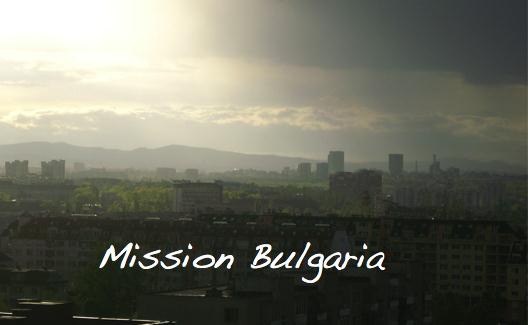 We are currently finalizing our Mission Bulgaria project through a seven-year long commitment, which has touched the lives and ministries of over 250 local churches in the country of Bulgaria. Along with these congregations, our international ministry team has worked with the Bulgarian Diaspora churches in the United Kingdom, Cyprus, Spain, Germany and France. Six Bulgarian churches are currently operating in Cyprus and four in the U.K., as there are projections for the registration of other Bulgarian churches as well. It has been a journey worth taking.
We are currently finalizing our Mission Bulgaria project through a seven-year long commitment, which has touched the lives and ministries of over 250 local churches in the country of Bulgaria. Along with these congregations, our international ministry team has worked with the Bulgarian Diaspora churches in the United Kingdom, Cyprus, Spain, Germany and France. Six Bulgarian churches are currently operating in Cyprus and four in the U.K., as there are projections for the registration of other Bulgarian churches as well. It has been a journey worth taking.
In relation to our ministry work in Bulgaria in the period of 2005-2012, among many others we’ve completed these seven milestones:
1. The publication of a complete revision of the Bulgarian Bible
2. Completing a new literal translation of the Bulgarian New Testament from the original Greek including the four gospels, acts, epistles, and the apocalypse
3. Establishment of the Bulgarian Chaplaincy Association with the special recognition of the US Department of State
4. Foundation of the Masters of Chaplaincy Ministry Program for Eastern Europe
5. Our national X event for youth every summer since 2005, which is accompanied with a Bible Camp for young ministers and a national mobile educational strategy
6. Building a broadcasting network which supports LIVE streaming of services and events for over 20 Bulgarian congregations every week
7. Implemented a long-term church planting proposal for establishing Bulgarian ethnic congregations outside of Bulgaria
After completing 7 years of ministry in Bulgaria, we are publishing a detailed overview of our work and results in a soon to be published monograph called simply Confessions. This new book speaks of the lessons we’ve learned in the ministry and issues of church and politics within the religious life of the country we’ve struggled to resolve. It addresses:
- The separation of church and politics of false religiosity
- Entering an organic relationship with God
- Depending fully in the ministry of the Holy Spirit
- Renvisioning the reality of the Kingdom
- Raising a new Pentecostal generation
- Reliving His glory
- Leaving a legacy worth remembering
As we are celebrating our 7-year long accomplishment of Mission Bulgaria, we are reminded that in 2013 God is doing a new thing.
On MISSIONS…
 Missions Test 1: Mission, Method & Message (2012)
Missions Test 1: Mission, Method & Message (2012)
Missions Test 2: Means, Motive & Opportunity (2012)
Missions Test 3: Missionary Testament (2012)
MissionSHIFT (Part 1): Paradoxes in Missions (2011)
MissionSHIFT (Part 2): Free Will Missions (2011)
MissionSHIFT (Part 3): WebMissions – The Good, The Bad and The Ugly (2011)
M3: Missions for the Third Millennium – A Public Position (2010)
8 Simple Rules for Doing Missions in the Spirit (2009)
Church of God Eastern Europe Missions: Leadership, Economics and Culture (2009)
Read also: Why I decided to publish Pentecostal Primitivism?
Revival Harvest Campaign 2012: Revival Must Go On…
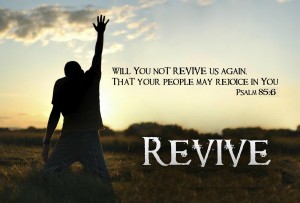 Labor Day weekend marks the beginning of our annual Revival Harvest Campaign. The purpose of the campaign is to reach lost souls and to encourage the local congregations through prayer and ministry. We appreciate the response from all churches who have participated in our Revival Harvest Campaign in previous years.
Labor Day weekend marks the beginning of our annual Revival Harvest Campaign. The purpose of the campaign is to reach lost souls and to encourage the local congregations through prayer and ministry. We appreciate the response from all churches who have participated in our Revival Harvest Campaign in previous years.
We will be opening the 2012 Campaign at a location that has been in our prayers over a decade now and our visit has been long anticipated. We have received similar invitations from other churches and we are praying that the Lord opens a door for us to minister there again in due time.
Since Bulgaria became a member of the European Union five years ago in 2007, hundreds of thousands of Bulgarians have emigrated in search for a better life. We’ve been ministering with these communities and helping them organize local Bulgarian churches. We ask that you join us in prayer for the Bulgarian congregations marked on the map below, as we are prayerfully working on a strategic program for reaching Bulgarian emigrants and establishing new churches abroad.
In midst of crises, confusion runs rampage, insecurity floods thoughts and spiritual warfare is greater than ever. And there exists doubt in well established faith that all is well. However, it is our prayer that this oppressive spirit be broken, that lies be reveled and that hope returns with great power from above. It is with this prayer that we receive this vision for revival to break the bondage of the mind. We continue to believe, regardless of how circumstances may appear or distractions which arise, that revival must go on . . .
Also read:
- State of Bulgarian Churches in the United States 2012
- Our Ministry Map for the United States
- State of Bulgarian Churches in Western Europe 2012
- Our Ministry Map for Europe
- State of Bulgarian Churches in Canada 2012
- Our Ministry Map for Bulgaria
Our Ministry in the Gipsy Ghetto of Yambol
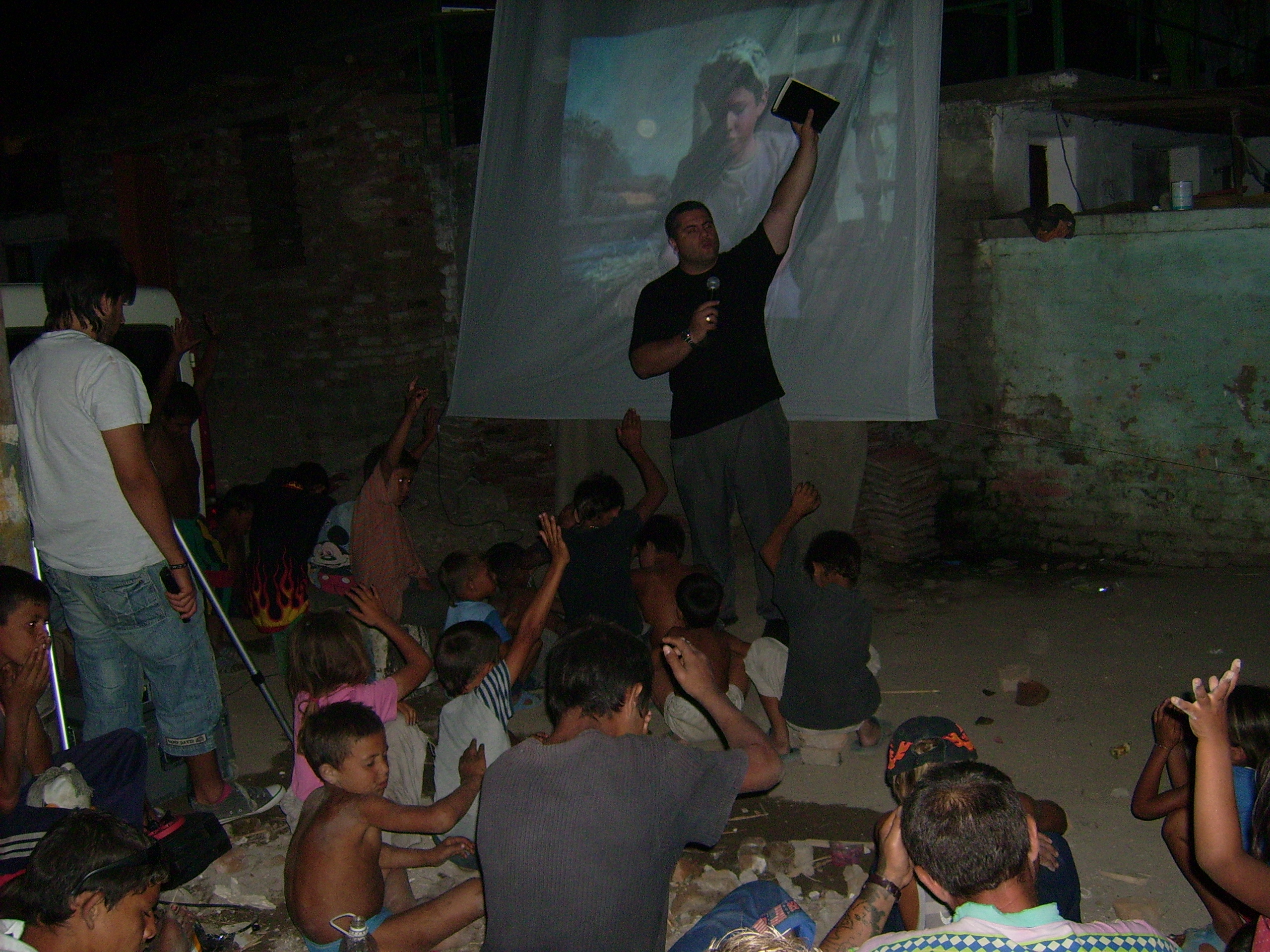
1990 We began serving in the Yambol area along with the local Pentecostal churches in the early 1990s after the Fall of the Berlin Wall
1992-93 Our team participated in a number of revival campaigns in the Gipsy Ghettos of Yambol, Sliven and Stara Zagora
1996 Along with Dr. Miroslav Atanasov of Sofia, we invested into the purchase of a building that is used for the meetings of the local Church of God led by its first pastor, who had mixed Gipsy-Turkish roots, brother Mitko Mohamed
2000 This was a turning point for the local congregation and many other minority groups in the region, as we led a Church of God campaign in several of the neighboring villages and regions stretching our outreach all the way to the Black Sea and the border between Bulgaria and Turkey
2001-04 In the years that followed, we completed a number of evangelistic campaigns in the Strandja Sakar region in South Eastern Bulgaria populated with predominantly Bulgarian speaking Turkish and Pomak people groups
2005 We renewed holding services in the Gipsy Ghetto of Yambol where by that time there were a dozen active Pentecostal congregations
2007 We helped restore the local United Church of God congregation after it had burnt down in a fire.
2008-09 After collaborating with local social services workers, our team devised an ethical guideline proposal for working with abused and abandoned children while consulting on project “Care for Orphans,” which worked with gypsy children of the area Ghettos
2010-11 We held services with many local youth groups, preaching the Gospel and praying for the people after showing the film Jesus for Children, after which dozens of people, both children and adults, accepted Christ as their personal savior confessing their sins and joining the local churches
2012 We have written extensively on the subject of Forming a Roma Gipsy Evangelical Identity in Bulgaria and our book on the subject is coming out for publication in the near future
MISSIONS TEST 3: Missionary Testament

Dony K. Donev, Cup & Cross Ministries International
The following World Missions series were sparked by a partial sign with the words “Missions Check,” we saw in Atlanta on our way to a mission’s trip to Europe just a weeks after the great tornado of 2011. We’ve observed the events that followed for over a year now, thus launching these series with a purpose. After serving in various ministry positions around the globe as a part of the Church of God for over 20 years, we have built a solid platform as a response to current problems and issues on the mission filed. In the past seven years alone, our ministry team has survived several consecutive denominational splits, and coming on the other side still preaching Jesus Christ and Him risen, this is what we have to state…
Check the Facts
Let’s face it – the simple truth is that as Pentecostals, we like to exaggerate. We love it when the numbers speak for themselves. The examples are so many that anywhere we look we find more numbers than actual people. The pastoral monthly reports must be there to ensure our way of life. Some even put a pen to the missionary’s statistics in order to calculate that every $33 or $55 or $77 given to missions returns as one saved human soul.
But do these numbers tell our story right? Hardly so! For who can count the tears shed in one’s intercessory prayer? And who can count the words of one’s heart cry toward God? Jesus Himself considered 99 as equal to the one lost, and the poor widow’s offering as much as all given by the rich. Seems appropriate to suggest that these are the real facts that count in the Kingdom of Heaven and they are the facts we should consider even in this earthly life.
Check the People
When you get down and personal with the issue, the problem is not in the numbers, but in the people who create them. Because before they are seen by all around us, facts are created first and foremost in the hearts of people and there lays the weakest link of any group of people. Wrong attitudes like jealousy, gossip, unconstructive criticism, disloyalty to leadership and negation of goals will ultimately affect the performance and can even destroy the group.
Even secular corporate companies for years have searched for people with a certain level of emotional intelligence (EI), defined as the ability to identify, assess, and control the emotions of oneself, of others, and of groups. It is said that EI has a direct effect on maximum performance and building relationships with personality. But working in the spiritual world, the control of emotion is not sufficient. What the church needs is people with spiritual intelligence (SI); and not merely a corporate based combination of Intelligence Quotient (IQ) and Emotional Quotient (EQ), but a truly Pentecostal, in-the-Spirit formed form of spiritual inelegance identified with spiritual knowledge, professional training and adequate experience in the ministry.
Check Yourself
The truth of the matter is that many see neither the people nor the facts, but are out for number one. This self-indulging political agenda has brought us to a point in the history of our church where we are not who we say we are anymore. The contrasts in our identity are so many, that five Pentecostal generations later, we stand at the verge of unprecedented identity crises for which very few have realistic answers or solutions.
1. Check your overall motives for missions and ministry. Thirty days of solitude fasting always helps clear the mind and the body from unnecessary baggage.
2. If there is sin, it is you at fault, not someone else. Make sure it is dealt with in a timely and proper fashion or it will destroy you within.
3. Forgive without forgetting. This means to keep on forgiving every time you remember the fault of the other person. If your brother has offended you, it is you that needs to find forgiveness (Mt. 19)
4. If you see one fallen by the road, it is you that must take care of him/her. You may be the only solution for the problems nearest to you.
5. Take responsibility in owning your feelings. Bitterness is a strong weapon in the hands of the enemy, but even negative emotions are a powerful tool in the hand of the Lord.
6. Express yourself. Start a blog and keep posting at least twice weekly. Then sum it all in a book and publish it. You will be surprised how many followers will find you.
7. Start preaching out of your comfortable zone, without a pulpit or set time. Broadcast it on uStream, publish it on YouTube. Whatever it takes you, get out there and just preach Jesus.
8. Appoint a morning hour for prayer and keep it just for you and God regardless of what may be going on around you.
9. Read all the books you were supposed to read in seminary. If you missed seminary, now may be a good time to submit your application.
10. Find other ways to grow. Not just as a professional or an expert, but as your own person. Be a self worth being.
11. Whatever you do, do not stay in the dry, out in the desert. There is a whole new promised land waiting for you. Surpass the midlife urges to bottle up your emotions and just keep on walking.
12. Remember: the place where you are going is worth all the effort.
Related articles:
Missions Test 1: Mission, Method & Message (2012)
Missions Test 2: Means, Motive & Opportunity (2012)
MissionSHIFT (Part 1): Paradoxes in Missions (2011)
MissionSHIFT (Part 2): Free Will Missions (2011)
MissionSHIFT (Part 3): WebMissions – The Good, The Bad and The Ugly (2011)
M3: Missions for the Third Millennium – A Public Position (2010)
8 Simple Rules for Doing Missions in the Spirit (2009)
Church of God Eastern Europe Missions: Leadership, Economics and Culture (2009)
Read also: Why I decided to publish Pentecostal Primitivism?
MISSIONS TEST 2: Means, Motive & Opportunity
Dony K. Donev, Cup & Cross Ministries International
The following World Missions series were sparked by a partial sign with the words “Missions Check,” we saw in Atlanta on our way to a mission’s trip to Europe just a weeks after the great tornado of 2011. We’ve observed the events that followed for over a year now, thus launching these series with a purpose. After serving in various ministry positions around the globe as a part of the Church of God for over 20 years, we have built a solid platform as a response to current problems and issues on the mission filed. In the past seven years alone, our ministry team has survived several consecutive denominational splits, and coming on the other side still preaching Jesus Christ and Him risen, this is what we have to state…

In times of hardships, when every church, family and person are tested and tried, missions must remain the front line of our church, the harbor for the lost and the heartbeat of God within us. In fact, missions are the only spiritual process that keeps a church alive during crises. For without a heartbeat after the Heart of God, a church is simply dead and dying…
But how do we know if our church is indeed missional and not mission-minded in name only? How do we know if we pass the MISSIONS TEST? Here are several guidelines:
(1) MEANS: Follow the Money
They did in the book of Acts right when the first mission wave in the early church was gaining speed. Literally! And while money is not the foundation of missions, merely its means to accomplish the plan of God, it sure helps to have it when you are in the mission field (speaking of one’s own experience).
The transparent report of church’s finances show a lot about the church itself. If the larger flow of finances is pointed inward, being used for church and family only, your church is not missional. To put it simple, the moment you vote to decrease money for missions, you are decreasing the mission’s outreach of your church – how far your church reaches with its mission. Yes, overspending must be always eliminated and smart stewardship of any missional budget is essential, but they should never alter the flow of finances to missions toward the internal needs of the church; because the rerouting back to the intended recipient will be virtually impossible. For such shift inevitably affects not just numbers and members, but the very ecclesial identity redefining the church from a missional extravert to a cognitive introvert congregation.
(2) MOTIVE: Follow the Structure
The missional structure of a church is initially invoked by an internal, organic, process of motivation produced by our very identity as a people of God. Prominent psychologists today tell us that the internal motivation is that pure, primitive, productive force which drives us from within. And it is no different in missions, where a fine line between calling and career is drawn. For once Missio Dei becomes a professional occupation for a primary payout, the point of missions has already been lost. And if the point of existence for a church structure is not the mission to the world, the church is probably not fit for the Kingdom. So Jesus told the rich young ruler.
A lesson learned from the drying banks of Rio Grande. We can trim a river, direct it and guide it to serve our needs, to produce power for electricity, to provide watering for farming, but it will soon loose its God given source of internal power to flow and will dry out. Altering the natural structure of missions if and when needed, must be done with the understanding that it may ultimately dry it out from within. Therefore, changes in the structure and praxis of missions should only be driven by a return to the first, primary model invoked by the search of God’s heart for lost men and under the direct leadership of the Holy Spirit.
(3) OPPROTUNITY: Follow the Spirit
Spiritual power comes from one source only – prayer in the Spirit. Spiritual power for missions must be prayed for, waited for, expected and exercised, anticipated and acted upon. And while individual prayer affects both the person and the church, nothing moves the Heavens like the continuous, corporate prayer of a congregation. This is what we learn from the day of Pentecost. And based on this, is the true test for mission readiness: The last time you had a church wide meeting, with the sole purpose to pray for the missionaries you’ve sent, is the moment your church ceased being missional. For being missional is “not an act, but a habit” – not a price, but a process. And not a single goal, but one constant going and striving toward the fulfillment of the Great Commission.
As a partner in the Great Commission, our church must carry a message, not merely a political involvement or social concern, but of a spiritual message, both in origin and in practice. For if you preach what you’ve not prayed through, you preach nothing but yourself. And if you have no message to share with the world, your mission endeavor is but a religious vacation to a foreign land. Therefore, our prayer for missions is foremost one constant call to the Spirit for new opportunities in the harvest. For it is ultimately God, who creates the opportunity of Missio Dei as His severing plan for saving the world. And if a church is to follow the call to be missional, it must abide in a relationship with God – the visionary, initiator and empowerer of missions. (Mission Ready, 2014)
Related articles:
Missions Test 1: Mission, Method & Message (2012)
MISSIONS TEST 3: Missionary Testament (2012)
MissionSHIFT (Part 1): Paradoxes in Missions (2011)
MissionSHIFT (Part 2): Free Will Missions (2011)
MissionSHIFT (Part 3): WebMissions – The Good, The Bad and The Ugly (2011)
M3: Missions for the Third Millennium – A Public Position (2010)
8 Simple Rules for Doing Missions in the Spirit (2009)
Church of God Eastern Europe Missions: Leadership, Economics and Culture (2009)
Read also: Why I decided to publish Pentecostal Primitivism?
MISSIONS TEST 1: Mission, Method & Message
Dony K. Donev, Cup & Cross Ministries International
The following World Missions Series were sparked by a partial sign with the words “Missions Check,” we saw in Atlanta on our way to a mission’s trip to Europe just a weeks after the great tornado of 2011. We’ve observed the events that followed for over a year now, thus launching these series with a purpose. After serving in various ministry positions around the globe as a part of the Church of God for over 20 years, we have built a solid platform as a response to current problems and issues on the mission filed. In the past seven years alone, our ministry team has survived several consecutive denominational splits, and coming on the other side still preaching Jesus Christ and Him risen, this is what we have to state…

A people is a group owning a vision. Vision is what we do today in order to have a better tomorrow. Mission is the things we do to accomplish the vision. And if mission without a vision is blind, mission without a message is blind without a tongue. It feels and it hears, but it can never fully perceive and speak to be heard.
A mission is distinct by the method via which it brings its message. These three are ultimately and intrinsically connected. If mission is what we do, method is how we do it, then message is what we want people to know after we have done it…
But the method of bringing the message quite often changes the message itself. Thus changing, adapting and altering the ministry method must be done with careful consideration of the long-term shift they create not merely in our mission, but on our own Pentecostal identity as well. While adjustments may be needed in missions as the world around us changes, the message must remain the same at all cost. For who is the source and the ultimate agent of change, except the author of the message – God in whom there is no shadow of change?
A good number of churches in the 21st century are choosing to abandon their mission programs as dysfunctional and obsolete in order to follow a more corporate-based model of becoming mission-sending agencies and/or partners with such. While this may be financially and structurally beneficial, such paradigm cannot work for any Pentecostal church with local or global representation without changing forever its corporate identity.
At the same time, there is no need to restart or reset missions, for Mission Dei is not a circular, seasonal or repetitive process in human history. It is solemnly based on the ultimate, one-time event of the crucifixion and resurrection of Jesus Christ, the Son of God. This salvific monument on the stage of eternity neither needs, nor will it ever repeat and recycle itself again into history. And it most certainly does not need our human participation to be reset into a new century. The only restarting that is ever needed is our own resubmission at the old rugged cross on Calvary.
Changing our missional structure to fit, the ever-changing world we live in, is a reaction, generally done post-factum if not too late. And any reaction is simply not leading, but following. Which bids the question, is the church leading in this world or is our mission being reduced to the needs of the current social system. For the Bible still calls us to be not conformed to this world, but transformed by the mind of Christ. To be not merely a culturally relevant church, but a Bible-based alternative culture in a sinful world.
The lesson of the contemporary and culturally relevant church should have been learned centuries ago by Byzantine Orthodoxy. For it is not the change of the world that affects the outcome of ministry, but the change of the church by transformation within. And it is there that the preservation of our cross-fixed, blood-washed, and power resurrected identity must remain constant and unchanging. Thus, we find simply irrelevant, any call for a culturally relevant church, which causes the change or yet even the loss of the message of eternal salvation.
Related articles:
Missions Test 2: Means, Motive & Opportunity (2012)
MISSIONS TEST 3: Missionary Testament (2012)
MissionSHIFT (Part 1): Paradoxes in Missions (2011)
MissionSHIFT (Part 2): Free Will Missions (2011)
MissionSHIFT (Part 3): WebMissions – The Good, The Bad and The Ugly (2011)
M3: Missions for the Third Millennium – A Public Position (2010)
8 Simple Rules for Doing Missions in the Spirit (2009)
Church of God Eastern Europe Missions: Leadership, Economics and Culture (2009)
Read also: Why I decided to publish Pentecostal Primitivism?
Our Ministry Map in Bulgaria
View Mission BULGARIA in a larger map
School Project in India
We write this report only to give thanks for what God is doing through faithful servants. For over a decade now Cup and Cross Ministries has worked closely with the efforts of the Bulgarian Missionary Network (BMN) and over the last several years its founder has been tirelessly promoting a project to build a school in India. The Lord led us to partner with this project on a personal level and we are thankful to see the results of the many hours of travel and hard labor which has been invested.


